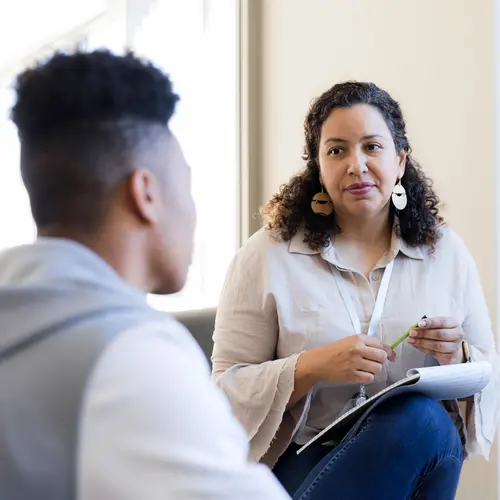When you’re dealing with any condition, you know how valuable it is to talk to somebody who has been in your place before. That’s what peer support for depression is all about -- getting help from someone who’s dealt with it themselves.
Peer support workers are people who are in recovery from mental health issues and are now doing well. They use their experiences to connect with others coping with similar issues and to help them heal.
There are different ways to get peer support. You can join peer-led support groups or find an individual mentor. There are professional peer support specialists and volunteers. You can connect in person, online, or on the phone.
Benefits of Peer Support
Research shows that people who get peer support see more improvement in their depression than those who don’t. Peer services could help you to take better care of yourself and to feel more satisfied, in control, and optimistic.
Peer support workers share their own experiences and the real-world strategies that worked for them. Their examples can give you hope and inspiration that you can overcome depression too.
They provide emotional encouragement through a nonjudgmental and understanding relationship. They will connect you with resources you can use and work with you to set goals. Peer supporters can coach you as you build community and practice skills to fight your depression.
Peer support is inexpensive, compared to other treatments. It’s not the same as therapy with a professional psychologist or psychiatrist, but it can work alongside those resources.
Finding Support
Peer supporters are sometimes called peer specialists, peer recovery coaches, or peer advocates. They work in all kinds of settings, including hospitals, primary care doctor’s offices, and mental health practices. There are peer supporters that specialize in substance abuse and various mental health issues, including depression.
A mental health support group is a good place to get started. These organizations offer groups online and in person around the country:
The Substance Abuse and Mental Health Services Administration’s helpline (800-662-HELP, or 800-662-4357) also gives referrals to local support groups.
Ask your doctor or therapist to recommend an organization with one-on-one peer coaches or mentors near you.
If you have had mental health issues and want to help others, you can train to become a peer support specialist. The Depression and Bipolar Support Alliance and Mental Health America offer courses and certification.

